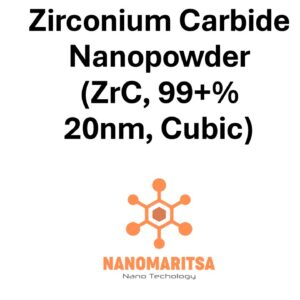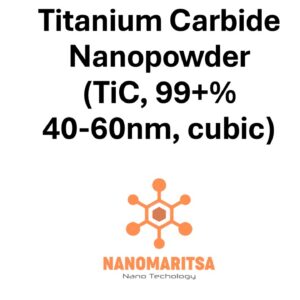Silicon nitride (Si₃N₄) nanopowder, with a purity of 99+% and a particle size ranging from 15 to 30 nanometers, is a high-performance material known for its excellent mechanical, thermal, and chemical properties. The amorphous nature of this nanopowder, combined with its fine particle size, offers distinct advantages in a variety of industrial applications. Silicon nitride’s unique combination of high strength, wear resistance, and thermal stability makes it an ideal material for advanced ceramics, coatings, and composite materials in demanding environments.
Composition and Structure
Si₃N₄ (Silicon Nitride):
Silicon nitride is a ceramic material composed of silicon and nitrogen atoms. In its amorphous form, the nanoparticles lack a defined crystalline structure, which results in distinct physical properties compared to crystalline silicon nitride. The amorphous nature enhances the material’s ability to absorb stress and impact, as well as improve its sintering behavior in various applications.
Purity (99+%):
With a purity of 99+%, this Si₃N₄ nanopowder is nearly free of impurities, ensuring reliable performance in applications that require precision and consistency. The high purity also contributes to the nanopowder’s superior mechanical properties, such as strength, toughness, and durability, making it suitable for high-performance applications in aerospace, automotive, and electronics.
Particle Size (15-30 nm):
The particle size range of 15-30 nanometers offers a high surface area-to-volume ratio, which significantly enhances the material’s reactivity, sintering behavior, and compatibility with other materials in composite applications. The small particle size also contributes to improved mechanical properties, such as strength and hardness when incorporated into advanced ceramics or coatings.
Properties
High Mechanical Strength and Toughness:
Si₃N₄ nanopowder exhibits outstanding mechanical strength and toughness, even at elevated temperatures. Its amorphous structure allows for better stress distribution, reducing the likelihood of catastrophic failure under mechanical stress. This makes it ideal for use in high-stress applications such as cutting tools, wear-resistant coatings, and structural components.
Thermal Stability:
Silicon nitride is known for its excellent thermal stability, maintaining its properties at temperatures up to approximately 1400°C. This makes Si₃N₄ nanopowder an excellent candidate for high-temperature applications, including turbine blades, heat exchangers, and other components in aerospace and energy systems.
Chemical Resistance:
Si₃N₄ is highly resistant to corrosion, oxidation, and other chemical degradations, even in harsh environments. This makes it suitable for use in chemical processing, environmental protection, and components exposed to aggressive chemicals, such as acids and alkalis.
Wear Resistance:
Due to its high hardness and low friction properties, Si₃N₄ nanopowder is ideal for wear-resistant coatings and components. It is used to enhance the longevity of mechanical parts subjected to high friction or abrasive environments, including bearings, seals, and gears.
Electrical Insulation:
Si₃N₄ nanopowder exhibits excellent electrical insulating properties, making it ideal for use in electronic devices that require insulation and protection from electrical interference. It is used in high-voltage insulation applications in power transmission systems and electronic components.
Applications
1. Advanced Ceramics and Composites:
- Ceramic Matrix Composites (CMCs): Si₃N₄ nanopowder is often used to enhance the performance of ceramic matrix composites. It improves the material’s fracture toughness and thermal stability, making it suitable for high-temperature, high-stress environments like turbine engines and aerospace components.
- Reinforcement in Composites: The nanopowder serves as a reinforcement in metal and polymer matrix composites, offering improved mechanical strength and resistance to wear, making it valuable for automotive, aerospace, and industrial applications.
2. Aerospace and Energy Systems:
- High-Temperature Components: Si₃N₄ nanopowder is commonly used in aerospace and energy applications for components that are exposed to extreme temperatures, such as turbine blades, engine parts, and heat exchangers. Its high thermal stability and resistance to oxidation make it perfect for these demanding environments.
- Heat-Resistant Coatings: The material is used in high-performance coatings for turbine blades, exhaust systems, and other components that operate in extreme heat. Si₃N₄ coatings enhance the longevity and efficiency of these parts, reducing maintenance costs and improving overall performance.
3. Wear-Resistant Applications:
- Coatings for Mechanical Parts: Si₃N₄ nanopowder is used to create durable wear-resistant coatings for industrial components such as bearings, seals, and gears. These coatings increase the lifespan of parts exposed to friction and wear, making them ideal for use in automotive and industrial machinery.
- Cutting Tools and Abrasives: The hardness and toughness of Si₃N₄ make it suitable for use in cutting tools, abrasives, and other high-wear applications. Its high mechanical strength ensures that it retains its sharpness and effectiveness during extended use in harsh conditions.
4. Electronics and Electrical Insulation:
- Semiconductor and Electrical Insulation: Si₃N₄ nanopowder is used as an insulator in semiconductor devices, where its high dielectric strength and electrical resistance prevent electrical leakage and interference. It is used in power electronics, electrical insulators, and protective coatings for electronic components.
- High-Voltage Insulators: The material is also utilized in high-voltage power transmission systems as an insulator, offering reliability and stability even in high-stress electrical environments.
5. Chemical and Environmental Applications:
- Catalyst Supports and Chemical Processing: Si₃N₄ nanopowder is employed as a catalyst support or in chemical processing applications, including the refining of petrochemicals and the synthesis of specialty chemicals. Its stability under high temperatures and resistance to corrosion makes it effective in promoting and supporting chemical reactions.
- Pollutant Removal and Environmental Protection: The material’s chemical resistance makes it useful in environmental applications such as filtration and pollutant removal. Si₃N₄ nanopowder helps in the degradation of pollutants in air and water treatment processes.
Safety and Handling
Health Considerations:
As with any nanopowder, care should be taken when handling Si₃N₄ to avoid inhalation or contact with skin and eyes. Proper protective equipment, such as gloves, masks, and safety goggles, should be used. Ensure proper ventilation in work areas where the nanopowder is handled.
Environmental Impact:
Silicon nitride is considered environmentally friendly and non-toxic. However, it is important to follow recommended disposal methods to prevent contamination from nanoparticle dispersion. As with all nanomaterials, further research is required to understand the long-term environmental impact.
Summary
Silicon nitride nanopowder (Si₃N₄, 99+%, 15-30 nm, Amorphous) is a versatile material with excellent mechanical properties, including high strength, wear resistance, and thermal stability. Its amorphous form enhances its stress distribution and sintering behavior, making it ideal for advanced ceramics, aerospace components, energy systems, and wear-resistant applications. The high purity and small particle size contribute to its superior performance in demanding environments, while its electrical insulating properties make it valuable in electronic applications. Silicon nitride nanopowder is essential in industries that require high-performance materials with excellent durability and resistance to extreme conditions.
| Measurement (gr) | 100 grams, 500 grams, 1000 grams |
|---|






